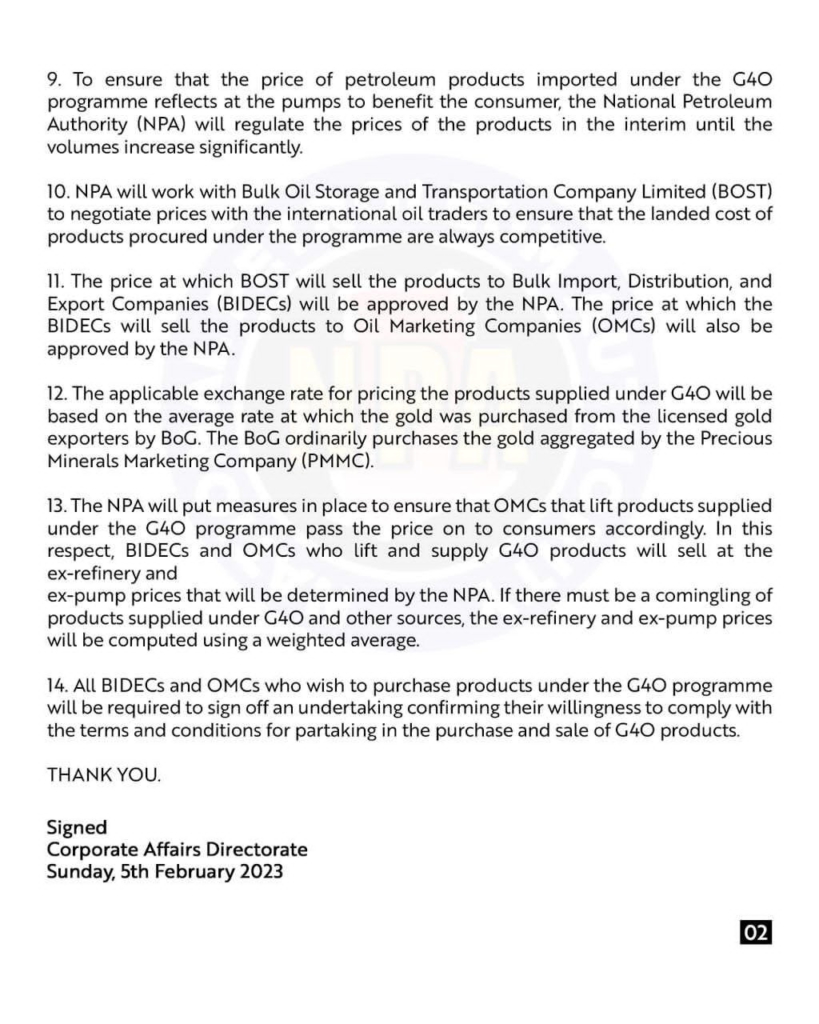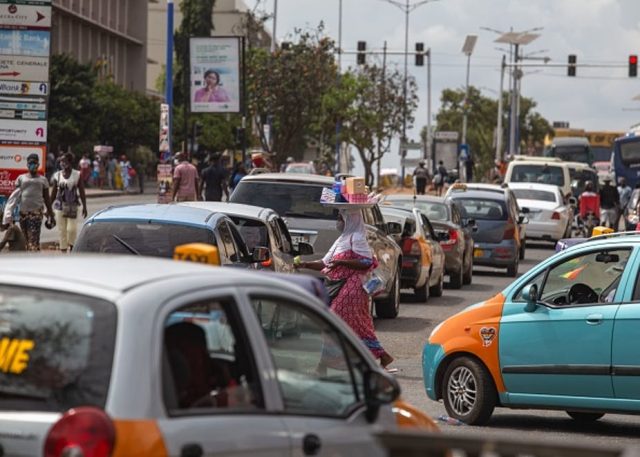Ghana will be hit by rising fuel as well as food prices as a result of the war in Ukraine. Photo by Nipah Dennis / AFP via Getty Images
The National Petroleum Authority (NPA), says government’s Gold for Oil deal will contribute to efforts to stabilise the prices of petroleum products across the country.
Payment for oil supply is expected to be done in two channels.
The channels will include a barter trade where gold is exchanged for oil “or via a broker channel where the gold is converted into cash and paid to the supplier”.
In a statement on Sunday, February 5, the NPA subsequently explained that, “The implementation of the G4O will ease pressure on the dollar (the currency used for the importation of petroleum products) and avoid the occasional increases in petroleum prices resulting from the depreciation of the cedi against the dollar”.
The assurance from the Authority comes at a time when some consumers are raising concerns about the relevance of the deal, in relation to subsiding petroleum products.
But in its latest release, the NPA noted that, “The consequent reduction in foreign exchange pressures and premiums charged by international oil traders as well as efficiency gains from the value chain will lead to lower ex-pump prices in the country”.
“To ensure that the price of petroleum products imported under the G4O programme reflects at the pumps to benefit the consumer, the National Petroleum Authority (NPA) will regulate the prices of the products in the interim until the volumes increase significantly”, the statement further disclosed.

“The NPA will put measures in place to ensure that OMCs that lift products supplied under the G4O programme pass the price on to consumers accordingly. In this respect, BIDECs and OMCs who lift and supply G4O products will sell at the ex-refinery and
ex-pump prices that will be determined by the NPA.
If there must be a comingling of products supplied under G4O and other sources, the ex-refinery and ex-pump prices will be computed using a weighted average”, the NPA added.
Meanwhile, the NPA says the implementation of the deal commenced with the arrival of the first consignment of about 40,000 metric tonness of diesel on January 15, 2023, valued at about US$40 million.
The first consignment of 40,000 metric tonnes of diesel constitutes about 10 percent of the country’s combined monthly demand for petrol and diesel.
The prime objective of the programme is to use additional foreign exchange resources from the Bank of Ghana’s Domestic Gold Purchase(DGP) programme to provide foreign currency for the importation of petroleum products for the country which currently stands at about US$350 million per month.
The plan is to gradually increase imports under G4O to constitute about 50 percent of the country’s total demand of petrol and diesel by March 2023.
The programme will ensure that the cost of importing the products from international oil traders to be comparatively cheaper.
The NPA says will work with Bulk Oil Storage and Transportation Company Limited (BOST) to negotiate prices with the international oil traders to ensure that the landed cost of products procured under the programme are always competitive.
The price at which BOST will sell the products to Bulk Import, Distribution, and Export Companies (BIDECs) will be approved by the NPA. The price at which the BIDECs will sell the products to Oil Marketing Companies (OMCs) will also be approved by the NPA.
The applicable exchange rate for pricing the products supplied under G4O will be based on the average rate at which the gold was purchased from the licensed gold exporters by BoG. The BoG ordinarily purchases the gold aggregated by the Precious Minerals Marketing Company (PMMC)
“All BIDECs and OMCs who wish to purchase products under the G4O programme will be required to sign off an undertaking confirming their willingness to comply with the terms and conditions for partaking in the purchase and sale of G4O products”, the statement concluded.
DISCLAIMER: The Views, Comments, Opinions, Contributions and Statements made by Readers and Contributors on this platform do not necessarily represent the views or policy of Multimedia Group Limited.









![Business tycoon in Novrongo to bury late father in a car [Video]](https://ghananewss.com/storage/2023/05/business-tycoon-100x75.jpeg)








